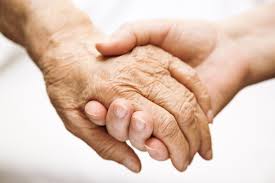Memorable Sukkah Moments

This year’s Sukkos is bound to be like no other in our memory. Thinking it would be fun to take a sentimental journey to “Sukkos past,” I polled some connections here in


This year’s Sukkos is bound to be like no other in our memory. Thinking it would be fun to take a sentimental journey to “Sukkos past,” I polled some connections here in

The havoc COVID-19 has wreaked is no laughing matter, yet you can’t help but chuckle at the lifestyle that has become our new global norm. Wearing masks, keeping each other at (triple) arm’s length, and constantly sanitizing our hands are understood, even, to some extent, by two-year-olds. I polled people around the world – and closer to home, in

Ethel Fischer had a problem. Her lift had left, and she herself was about to board the plane – on her way fulfilling her lifelong dream of aliyah. But how, during these pandemic times, would she say goodbye to a whole host of friends from many stages of her life? How would she show her gratitude to the wonderful people from diverse segments of the community with whom she had worked? Should she take out an ad? Call for a Zoom meeting? Arrange a drive-by goodbye? I suggested writing this article as an alternative, and Ethel took me up on my offer. I penned this just hours before she left.

Rosh Hashanah is less than three weeks away. No doubt, you’ve been wondering how this year’s Yamim Nora’im (High Holidays) will play out. What social distancing and other precautions will be taken in various shuls? Will there be a women’s section? If I don’t go to shul, how will I hear shofar blowing? Is hearing the standard number of shofar blasts even a requirement this year?
Our concerns and questions are shared around the world. It seems certain that fewer people will be attending shul this year, and the typically overflowing shuls grapple with adapting their services in this uncertain COVID era. Planning can’t help but be fluid up until Kol Nidrei and beyond as restrictions are constantly changing.
I just read an article in the Jerusalem Post mentioning the Rosh Hashanah and Yom Kippur plans of the Ramban synagogue, located in Yerushalyaim’s Greek Colony neighborhood. Since the maximum number of people in an indoor space is currently limited to 20 in

I recently saw a clever ad, a spoof on a Merriam-Webster dictionary entry defining telehealth:
“The provision of healthcare remotely by means of telecommunications technology. Synonyms: convenient; virtual doctor; accessible care. Antonyms: long waits; copays; deductibles; impossible to do from your La-Z-Boy.”
During these COVID times, a lot of things have changed. We’ve had no choice but to work, learn, and shop from home. That list of home-based activities has also come to include getting medical care. Although telehealth – seeing your doctor on the computer screen – existed before the pandemic, it is now big business. According to GBMC’s Medical Director of Primary Care and Population Health, Dr. Robin Motter-Mast, GBMC’s telehealth project was put into place a year before COVID hit hard and was prepared to help patients. In February, GBMC charted 59 telehealth visits; by May, there were approximately 18,000.

What’s the latest COVID scoop in our community? I spoke to two medical experts in the know. Jonathan (aka Shaya) Lerner, the Assistant Vice President of Advanced Practice Providers for LifeBridge Health, is also a volunteer paramedic for Hatzalah of Baltimore and the chair of its Quality Assurance Committee. Dr. Avi Rosenberg is a practicing renal and pediatric pathologist and cell biologist at
Copyright © 2012 Where What When. All rights reserved.